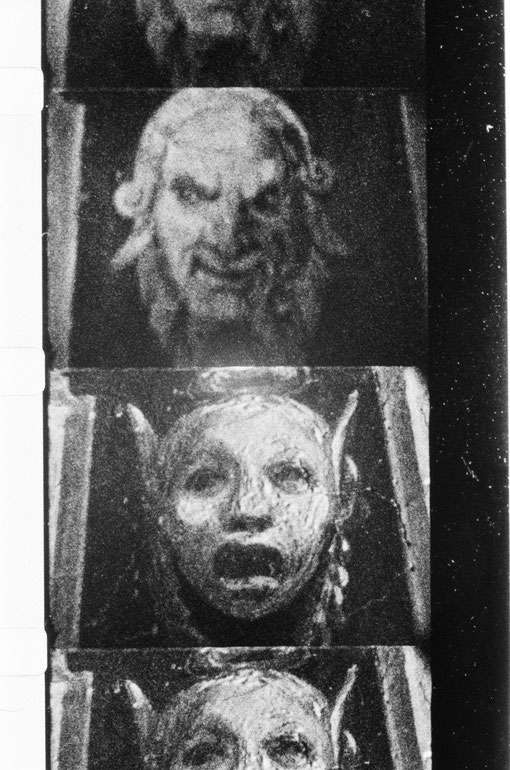In Rome
Although this film does not follow the genre of the city portrait in any way whatsoever, it nonetheless presents a documentation of the filmmaker´s sojourn in Rome. The starting point is relicts of an empire already ruled by a culture of travel and by tourism, its centuries-old structures; their monumentality, ambivalent beauty, transience, and omnipresent, ornamental grotesqueness. In the first half of the two-part film, in particular, the viewing angles are dominated by the architecture of Castel Sant´Angelo and its shooting slits. The shots installed in the camera fluctuate between structure and human figure - detailed recordings of Gröller´s significant other; whereby the gaze through the slits and the fast Super-8 pan of the stonework of the mausoleum combined with the (body)fragments; shoulder, belt buckle, face, ear or (wrinkled) neck evokes both a sense of escape from the tightness of the corset and fleetingness or retreat into the inner universe until the back view of a statue (Giordano Brunos) formally closes this first part. Learning poetry by heart has become a set habit during Gröller´s travels, and there are passages from Christian Friedrich Hebbel’s Rome poems, such as Eine Mondnacht in Rom (A Moonlit Night in Rome), that seem to accompany the film from off screen:
Bei´m Dämmerlicht des Mondes schau´ ich gerne / At the moon´s gloaming I like to look
Der grauen Weltstadt bröckelnde Ruinen, / At the grey metropolis, crumbling ruins
Die uns als Maaß für ihre Größe dienen, / Which serve as a measure of its greatness
Woran der Mensch sich selber messen lerne; / On which humans learn to measure themselves.
In the second part, following the black screen are primarily views of the city with photos of Roman tourist attractions, squares, and fountains, which could possibly develop a closeness to a conventional city portrait, if it weren´t for those grotesque faces at the fountains and buildings, which pervert the mood and once again pose the question of the relationship between inner and urban architectures.
(Rike Frank)
Translation: Lisa Rosenblatt

